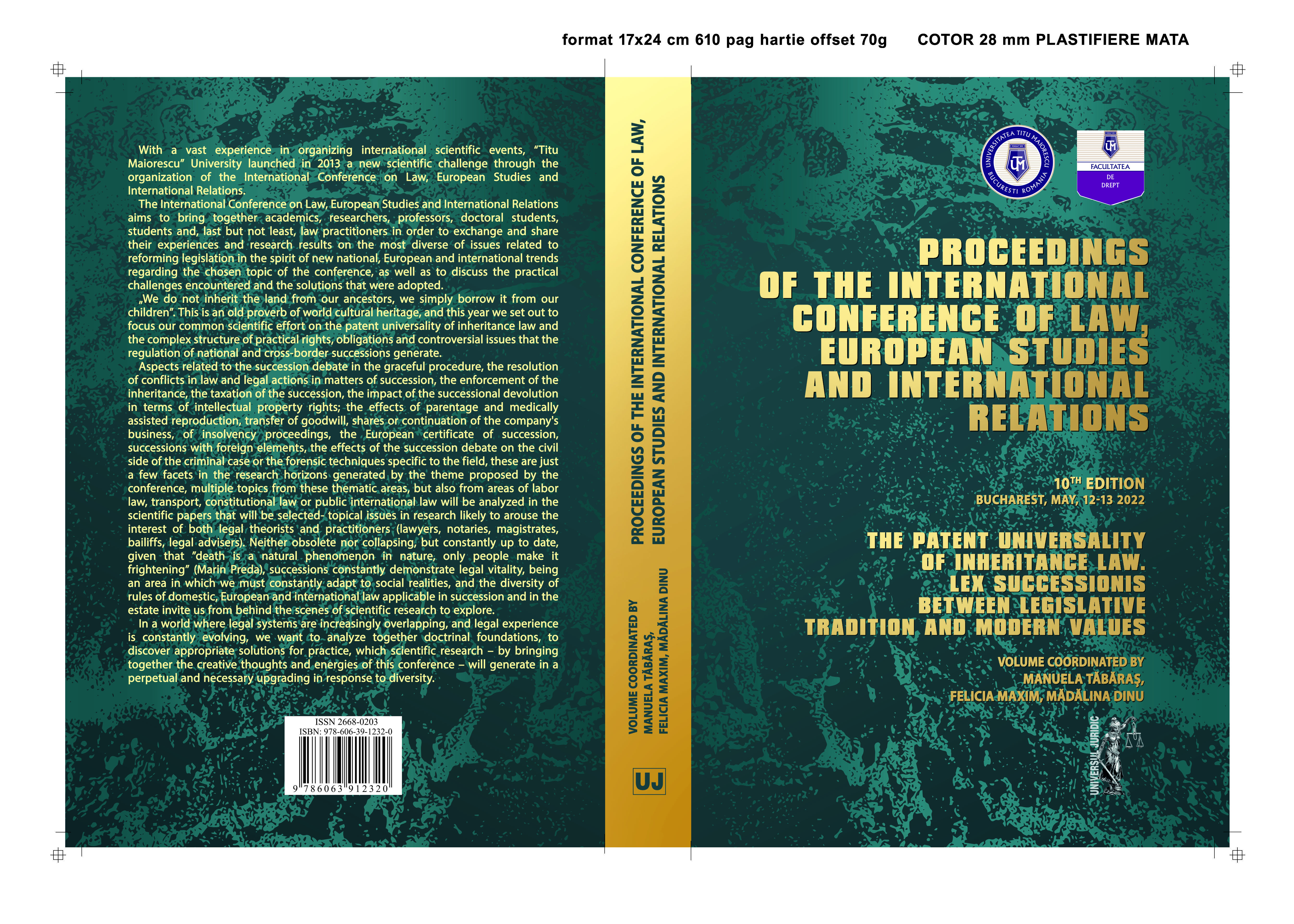THE PROCEDURE FOR ASCERTAINING THE UNWORTHINESS OF THE HEIR AND THE PRINCIPLE OF THE PRESUMPTION OF INNOCENCE – COMPATIBILITY EXAMINATION FROM THE PERSPECTIVE OF THE E.CT.H.R.. STANDARDS
THE PROCEDURE FOR ASCERTAINING THE UNWORTHINESS OF THE HEIR AND THE PRINCIPLE OF THE PRESUMPTION OF INNOCENCE – COMPATIBILITY EXAMINATION FROM THE PERSPECTIVE OF THE E.CT.H.R.. STANDARDS
Author(s): Alin PetreaSubject(s): Law, Constitution, Jurisprudence, Civil Law
Published by: Universul Juridic
Keywords: indignity; presumption; innocence; compatibility;
Summary/Abstract: Succession indignity presents the features of a civil penalty. Some cases of indignity are based on the commission of illegal acts which, at the same time, meet the constitutive elements of a crime; for the latter cases of indignity, the Civil Code establishes the possibility of their detention by the civil court in the event that the criminal process has been completed by pronouncing a solution of classification/termination of the criminal process derived from the death of the perpetrator, the incidence of pre-conviction amnesty or as a result of the intervention of the prescription of criminal liability. Therefore, the civil court has the task of verifying the commission of the deed and its criminal character in order to be able to establish, respectively declare the unworthiness of the defendant, a context in which the presumption of innocence of the perpetrator becomes applicable. The right to respect the presumption of innocence implies, among other things, the obligation of the public authorities, including the courts, not to pronounce on the criminal guilt of a person in a procedure other than the criminal one, whenever the criminal process directed against the perpetrator was terminated without pronouncing his conviction. There is, therefore, a normative tension between art. 958 para. (2) and art. 959 para. (4) of the Civil Code, on the one hand, and art. 6 par. 2 E.C.H.R.., on the other hand. Thus, it is necessary to identify a compromise solution that allows the harmonization of the national provisions listed in art. 958 para. (2) and in art. 959 para. (4) of the Civil Code with the principle of presumption of innocence. The solution identified by us is that of the compliant interpretation of art. 958 para. (2) and of art. 959 para. (4) of the Civil Code, related to art. 6 par. 2 E.C.H.R.
Journal: Conferința Internațională de Drept, Studii Europene și Relații Internaționale
- Issue Year: XII/2023
- Issue No: XII
- Page Range: 69-85
- Page Count: 17
- Language: English

